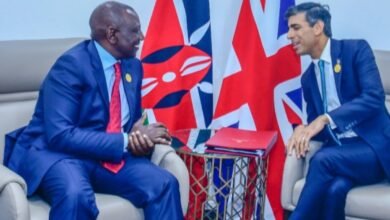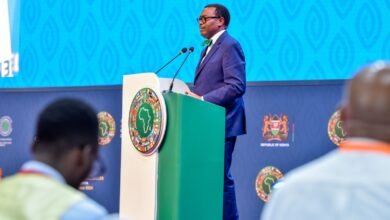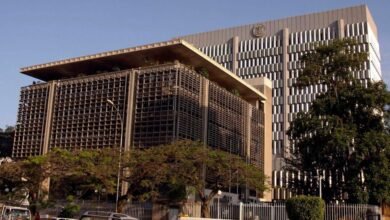
Fuel prices have hit new highs in Tanzania as tensions in eastern Europe continue to impact the global oil market.
According to the latest cap prices for May for petroleum products, announced late Tuesday by the Energy and Water Utilities Regulatory Authority (EWURA), petrol prices in Dar es Salaam are now up to Ksh.156.84 (Tsh3,148) per litre and diesel Ksh.162.28 (Tsh3,258) a litre.
The new prices represent a 9.5 percent increase for petrol and 17.1 percent for diesel following hikes of 12 and 21 percent, respectively in April.
The new retail price for kerosene in Dar es Salaam is Ksh.155.01 (Tsh3,112) per litre compared to Ksh.133.61 (Tsh2,682) in April and Ksh.110.06 (Tsh2,209) in March.
“Prices of each petroleum product throughout the country will be computed based on the cost of the product received through the ports and the transport costs to the respective regions,” said EWURA.
The most expensive selling point remains Kyerwa district in the Kagera region on the border with Rwanda and Uganda where petrol now costs Ksh.168.64 (Tsh3,385), diesel Ksh.174.12 (Tsh3,495), and kerosene Ksh.166.89 (Tsh3,350) per litre.
Ugandans living near the border with Tanzania have been crossing over to buy cheaper fuel, especially at the southern border post of Mutukula.
In April, President Samia Suluhu said the Russian invasion of Ukraine was one of the factors that has led to increased prices. She asked the Cabinet and leaders in various sectors to explain to Tanzanians why the cost of living had shot up.
“It would be better for government officials at all levels across the country to just be frank with citizens and prepare them for a big surge in the cost of living because of this war. It’s going to affect everything, and there’s no point in trying to hide that fact,” said President Suluhu.
Kenya’s fuel prices, however, appear more favourable than in Tanzania, Uganda and Rwanda who form part of East African Community (EAC).
Even though the commodity price skyrocketed to an all-time high of seven percent in April, it is retailing at a lower price compared to sibling countries in EAC.
Today, a litre of Super Petrol is retailing at Ksh.144.62, Diesel at Ksh.125.50 and Kerosene at Ksh113.44, an increase of Ksh.9.90 across all the products.
In the March review by Energy Petroleum and Regulatory Authority (EPRA), the price of a litre of Super Petrol stood at Ksh.134.72 Diesel stood at Ksh.115.60 but Kerosene retailed at Ksh.103.54.
Hoarding Fuel In EAC
In Tanzania, EWURA warned fuel station owners against hoarding stock to maximise profits from price hikes.
“There are reports that some wholesale and retail fuel suppliers have taken to hiding their stocks since the new prices were announced. Any supplier found hoarding fuel will have their licences revoked,” the agency said in a notice on April 5.
In Uganda, Prime Minister Robinah Nabbanja said early April that bulk importers were taking advantage of supply glitches to distort the market.
“Some companies have increased the price by a small margin, but others have hiked it to exploit Ugandans,” said Nabbanja.
Kenya was worse hit with shortages for close to two months.
Oil Marketing Companies (OMC) in Kenya were only supplying fuel stations that they own on the grounds that they will incur losses should they sell to other retailers as a result of the government fuel subsidy.
In a meeting on April 27, however, with top government officials from Energy Ministry, OMC bosses agreed to replenish non-franchised fuel dealers with 20 million litres of the commodity to end fuel shortage.
The deal included among others, selling the commodity at a reasonable price in line with the government’s fuel subsidy.
“OMCs have agreed to sell fuel to the independents at a reasonable price. We are confident that the above measures are sure to set the fuel supply system to recovery and eventually restore normalcy,” said Petroleum Outlets Association of Kenya (POAK) Chairman Martin Chomba.
In the first incident of fuel shortage which lasted for a month, OMC were hoarding petrol and diesel over a Ksh.13 billion debt the government had owed them.
The debt was settled, but the shortage continued until April 14 when the Energy Petroleum and Regulatory Authority (EPRA) reviewed pump prices upwards.
Additional information by CGTN, The East African





